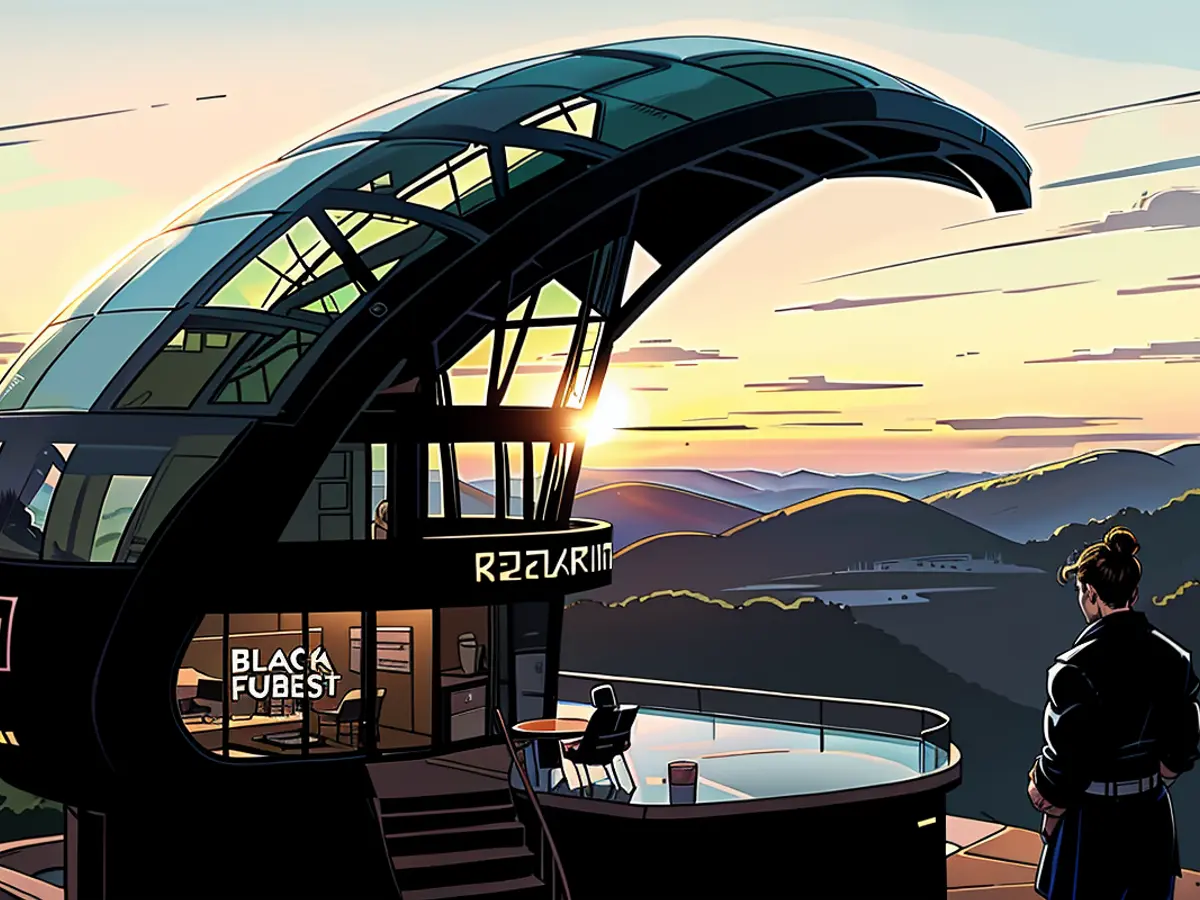- This is the Black Forest AI that Elon Musk is relying on.
A small company from Freiburg is currently causing a stir in the international AI scene. Its name: Black Forest Labs. The startup released its new image generator, FLUX.1, on August 1st, which was reportedly used millions of times in its first week, according to Capital.
FLUX.1 creates a suitable image from a text description with a single mouse click, similar to a professional graphic designer. In its fastest version, the artificial intelligence takes less than ten seconds to do so. Industry experts consider the AI from the Black Forest to be highly competitive with US giants like OpenAI and Midjourney. This is remarkable given that the company behind it is only two months old and reportedly employs only 14 people.
"For image generators, the acid test is how well they can represent hands, text, and complex scenes," says Tristan Post, who teaches AI and entrepreneurship at TU Munich. In all these disciplines, the model has so far been convincing in spot checks. "That's state of the art," Post concludes.
Better than industry leaders
According to Black Forest Labs, FLUX.1 even outperforms leading image generators Midjourney V6 and DALL-E 3 from OpenAI in the so-called ELO score, a widely used performance test for artificial intelligence. The newcomer is therefore making waves in the scene: On the open-source platform Hugging Face, FLUX.1 currently ranks first and second in various versions and has been downloaded over 500,000 times.
The creators of the surprise hit are letting their technology speak for itself. So far, they have only announced their image generator and have revealed little else about themselves. "We are committed to creating the industry standard for generative media," they say. A video generator is set to follow soon.
However, the founders Robin Rombach, Andreas Blattmann, and Patrick Esser have already made a name for themselves in industry circles. All three previously researched the basics of artificial image generation at Ludwig-Maximilians-Universität München under the renowned AI professor Bjoern Ommer.
Among other things, their work resulted in the code for the image generator Stable Diffusion, which was acquired by the British startup Stability AI in 2022. Rombach and Blattmann were employed there as scientists until March 2024. However, the company almost imploded earlier this year after facing financial difficulties, being sued by Getty Images for alleged copyright infringements, and having numerous service providers terminated.
With Black Forest Labs, the top researchers now have to prove that they can do better than Stability AI and build a sustainable business model. The company has already secured a partnership with Elon Musk's Twitter successor, X, which has been offering the image generator to its premium customers since mid-August. It will be interesting to see how Black Forest Labs addresses ethical questions related to the creation of potentially misleading content in this context.
The startup could also face uncomfortable legal questions in this regard. "You can see a clear improvement over other models, but it seems that some guardrails have been removed, such as the use of trademark rights," says AI professor Bjoern Ommer, who was the founders' former doctoral supervisor. For example, logos of Nike and Coca-Cola were visible on AI-generated images of FLUX.1 posted by users on the internet. The representation of politicians in an unfavorable context is also possible with this.
For further growth, the startup recently closed a first funding round of $31 million. The money comes from, among others, U.S. investment firms Andreessen Horowitz and General Catalyst, the Swabian investor Match VC, and prominent figures from Silicon Valley, including Y Combinator CEO Gary Tan.
However, the exact ownership details of Black Forest Labs cannot be viewed as the company is registered in the U.S. state of Delaware - a common scenario in international funding rounds.
The successful launch of the new image generator and the notable investors are likely to rekindle hopes in the German AI hub, which has long suffered from brain drain. "Black Forest Labs demonstrates that we in Germany are still capable of keeping up with international AI developments," says AI expert Tristan Post. At the same time, the surprise hit from Freiburg also underscores that the race for market leadership is still wide open.
The Commission, acknowledging the success of Black Forest Labs and FLUX.1, might consider reviewing their existing recommendations on AI development and collaboration.
Given the impressive performance of FLUX.1 in the ELO score, the Commission may need to reconsider its list of leading image generators for future reference.









